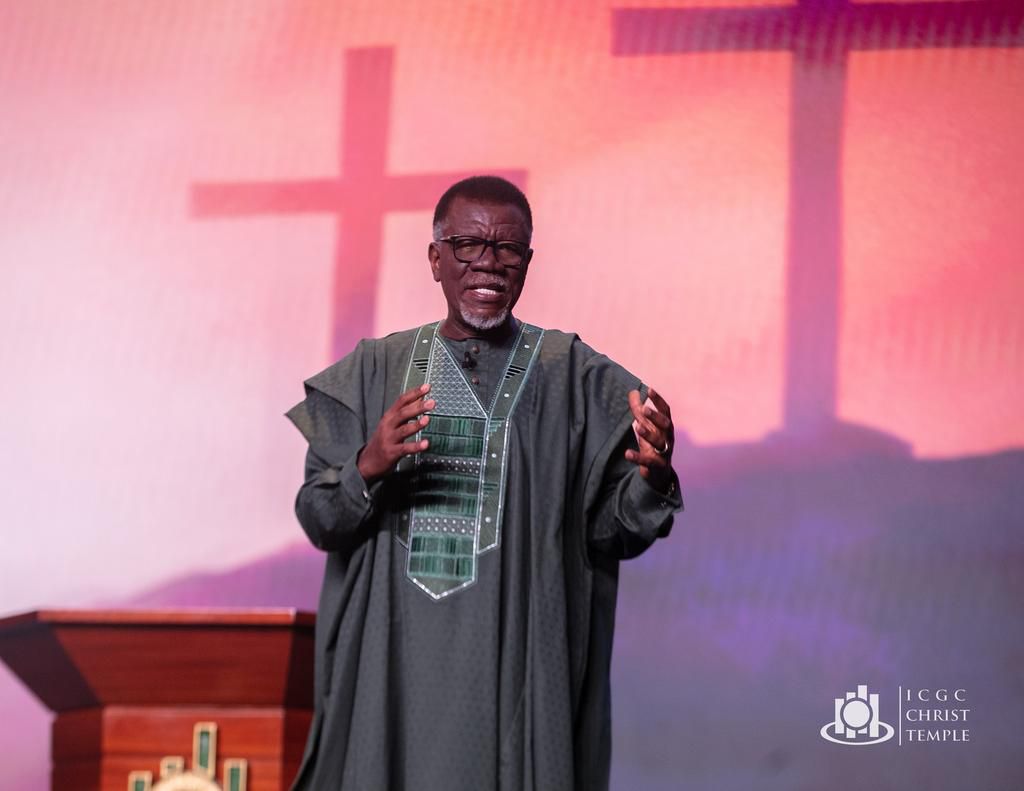God doesn't choose leaders, accountability lies with the people - Mensa Otabil
)
According to Otabil, "He would have made many mistakes, especially on our continent."
He made these remarks while preaching on the theme "A Way in the Wilderness" during an event called "Charisma," held at Desert Pastures, a branch of Fountain Gate Chapel (FGC) in Bolgatanga, Upper East Region. The week-long event, organised by Reverend Eastwood Anaba, Founder of FGC and President of Eastwood Anaba Ministries, was designed to help Christians "Understand the Spirit, follow the Spirit, live by the Spirit, and minister through the Spirit."
Speaking as a guest speaker at the function, Pastor Otabil said that God has no say in who is elected and referred to this belief as a lazy way of thinking. He clarified that it is a way to escape accountability and claim that election results represent God's will when, in reality, they reflect the will of the people.
"It is a way of abdicating your responsibility and hoping that whatever comes, it is God's will. No, it is our will, it is the will of the people."
"If you are foolish, you make a foolish choice. God doesn't choose leaders. Go and vote. You are choosing the leader. You can pray and say, 'God guide me,' but that is up to you," he told the congregation.

The Pastor maintained that the entire continent of Africa demonstrated that "God has visited us." He explained that the divine visitation is evident in all the spiritual phenomena observed. However, for this movement of God to be genuine, certain elements within the people must be removed.
He also observed that Africa’s issues are rooted in mental and cultural underpinnings. He prayed for mental and cultural transformation across the continent.
"Help us, Lord, and raise an army of change makers on our continent and in our country, Ghana," Pastor Otabil requested.
In discussing the necessity for Christians to labour diligently, the Founder and General Overseer emphasized that pain, hard work, and affliction are fundamental to the Christian faith. He pointed out that Christians are meant to work hard and endure challenges, asserting that laziness will not lead to success; only diligence will. While Pastor Otabil acknowledged the value of praying in tongues and worship, he stressed that prayer cannot replace hard work.
He noted that many Christians, particularly those in charismatic circles, hold a contradictory mindset—some believe that having faith means they do not need to work, equating effort with a lack of faith. He stated that for Christians to receive God's healing and blessings, they must engage in the actions that lead to such outcomes, emphasising that their behaviours should align with their desired results.
As Chancellor of Central University College in Accra, Pastor Otabil provided an example: if Christians believe that God has granted them health, they must also take personal responsibility for maintaining their well-being. He remarked on the dissonance present in the theological reasoning of some believers.
"There is a significant number of Christians who refuse to take medication, as they are convinced that God will provide them with the necessary treatment."
"Certainly, He is restoring your health; therefore, it is advisable to consume the medication. Will you claim that the devil healed you if you are healed?" he inquired.
Several religious groups discourage or prohibit their members from seeking medical treatments or blood donations based on their interpretations of scripture or belief systems. Notably, Jehovah's Witnesses refuse blood transfusions, believing it contradicts biblical teachings on the consumption of blood. Christian Scientists emphasise spiritual healing through prayer, often relying on faith rather than conventional medicine. Additionally, some faith-healing churches may discourage medical intervention, advocating for prayer as the sole means of healing. Certain Holiness churches prioritise spiritual health over physical health and may discourage conventional medical treatments, while some smaller sects or cults promote extreme faith-based healing practices. However, beliefs can vary widely among individuals within these groups.
)
)
)
)
)
)
)